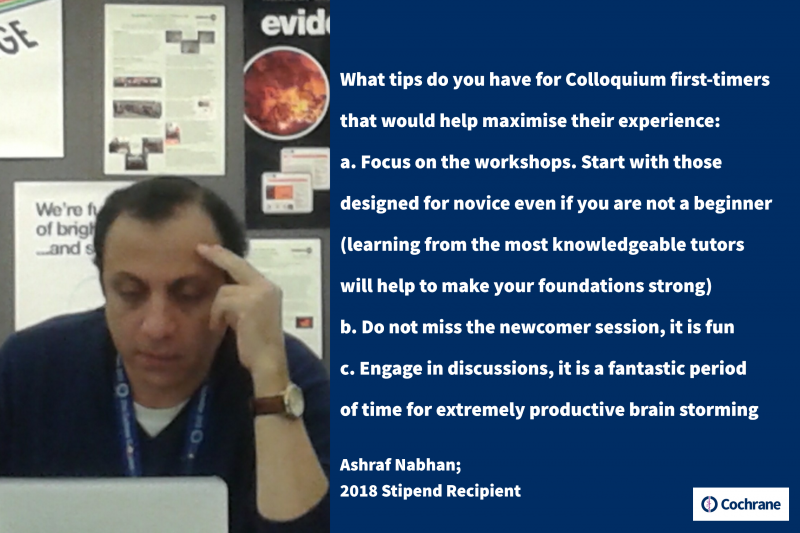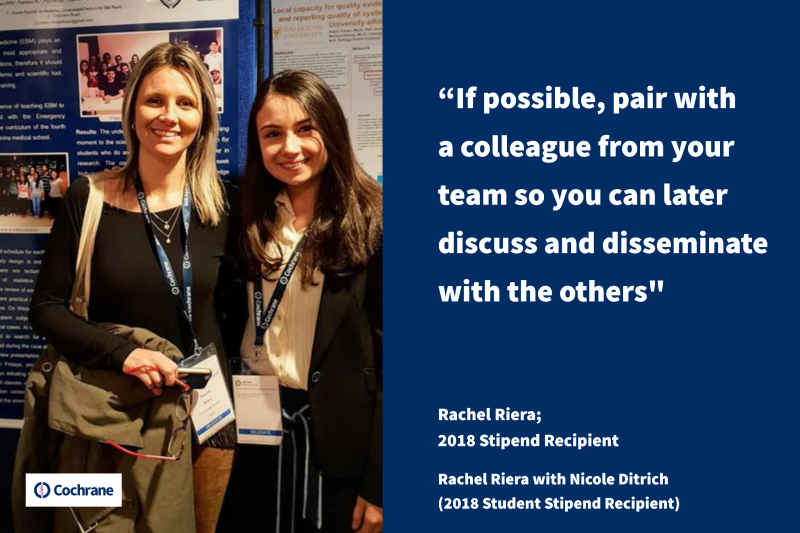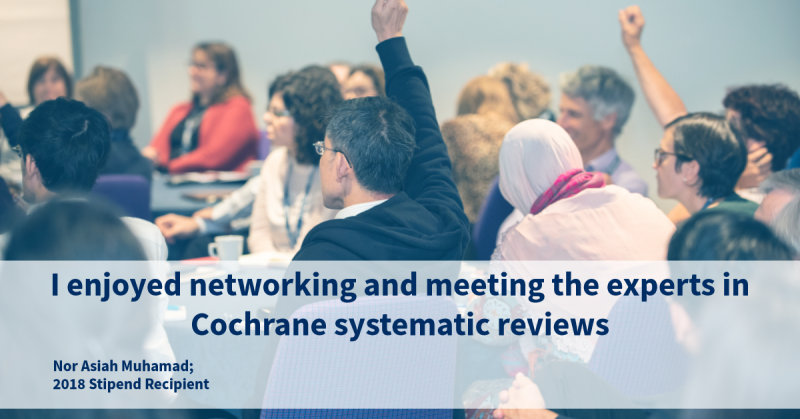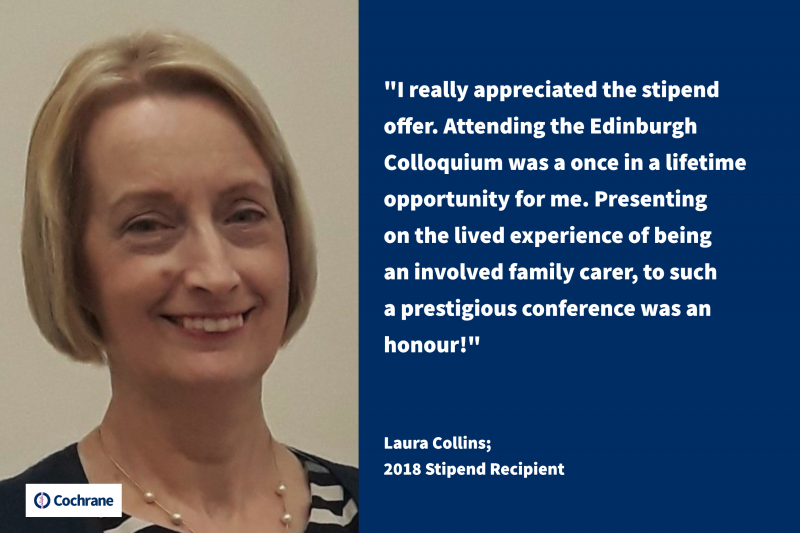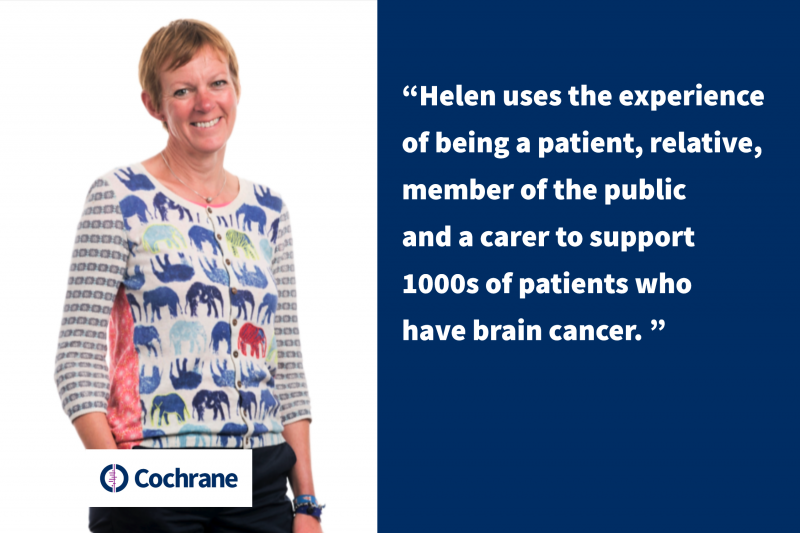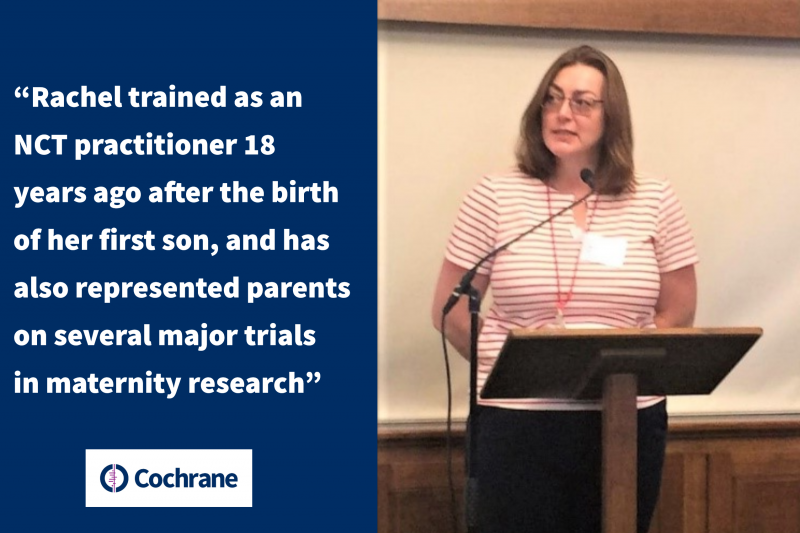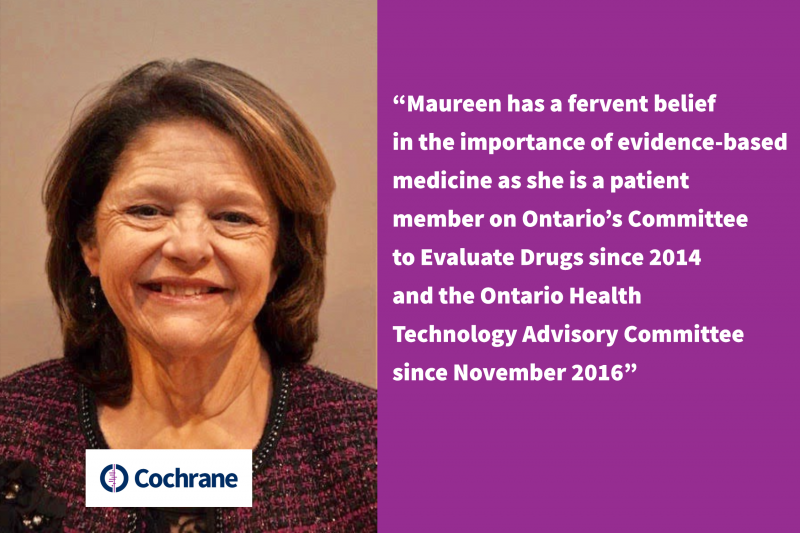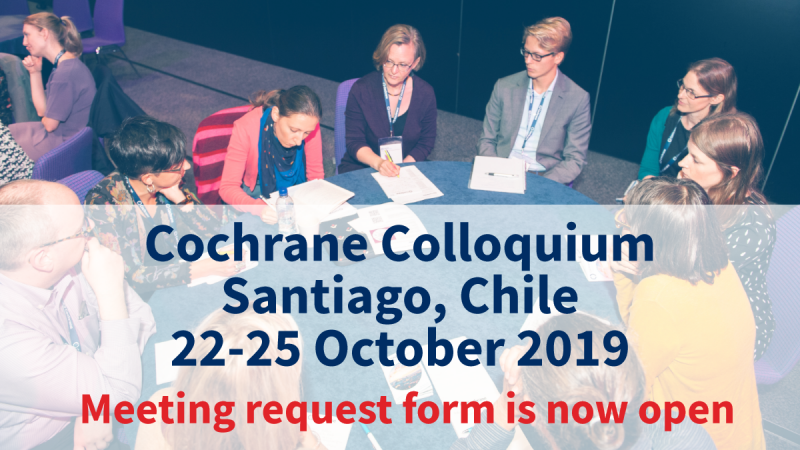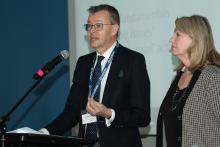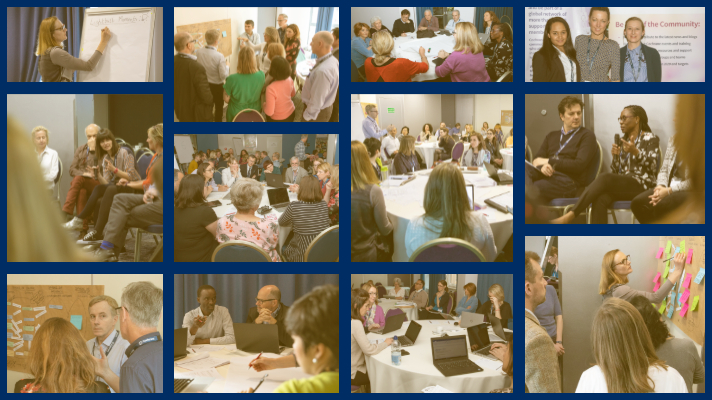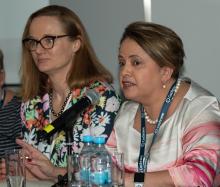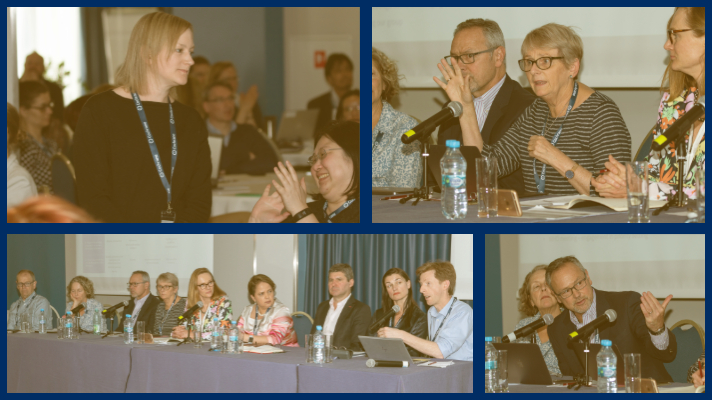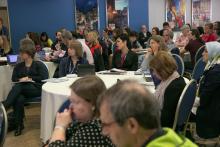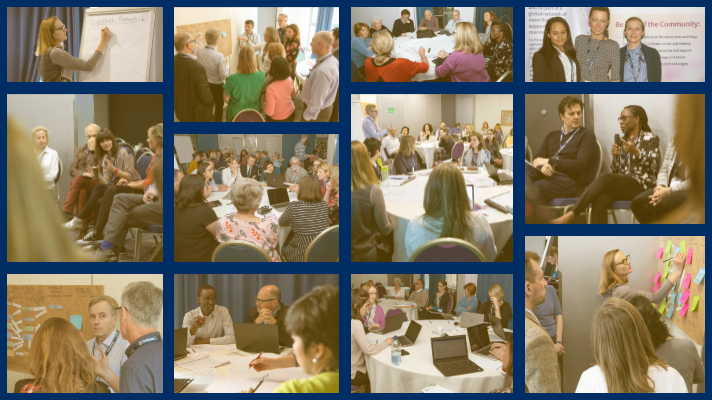Conflict of Interest Revision Project – Progress Report, May 2019

Background
The transparent and effective management of conflict of interest is at the heart of Cochrane’s reputation for creating high quality, unbiased health information. Cochrane’s current Commercial sponsorship policy is very strong in comparison to other biomedical journals. It is consistent with major guidelines bodies, in that it not only requires conflicts of interest to be declared, it also rules that some authors are ineligible from conducting Cochrane Reviews. Nevertheless, all polices, however robust, need to be reviewed and revised periodically. The Commercial sponsorship policy was last updated in May 2014, following a consultation exercise.
Data from cases referred to Cochrane’s Funding Arbiters indicate that some clauses in the current policy are ambiguous or lacking in sufficient detail and are therefore challenging for Cochrane authors and editorial teams to implement. In addition, audits requested by the Cochrane Governing Board Co-Chairs in 2014 and 2017 suggest that adherence to the policy is inconsistent. There has also been discussion within the Cochrane community and elsewhere about the role of non-financial (academic, professional and personal) conflicts of interest, and the need for a policy to address these. In March 2018 the Governing Board approved a proposal to revise the current commercial sponsorship policy and develop a non-financial or academic conflict of interest policy. For more information about the project please see an editorial published in the Cochrane Library in November 2018.
Methods
In October 2018, a project team was assembled to work on the COI policy revision project forward, including David Tovey, Ruth Foxlee, Kirsty Loudon and Graham Smith from the Editorial & Methods Dept and Fergus Macbeth and Angela Webster, Funding Arbiters. Two project boards were convened to provide advice and support to the project team – one focusing on financial conflicts and the other on non-financial conflicts. The project boards have now been merged into a single board which includes representatives from the Governing Board, the Cochrane Council, the Editorial Board, and COI experts both internal and external to Cochrane.
To inform the policy revision the project team has undertaken three separate activities:
- A literature review to gather ideas and information about COI policies in other organisations globally
- A survey of the Cochrane user community
- In-depth interviews with representatives of key Cochrane stakeholder groups and other individuals with COI expertise
Progress to date
The information gathering stage of the literature review has been completed and a report is in the final stages of receiving feedback from the COI Project Board. The report summarises the appropriate sections of COI policies from 33 biomedical journals and organisations and the latest literature on COI.
The community survey closed on the 17th of February with a total of 970 completed entries. The data collected through this survey has been analysed using mixed methods, with both quantitative analysis of the 19 questions and qualitative analysis of the 1,333 free text responses. This included 199 responses to the final question requesting “additional feedback and examples of Conflict of Interest”. A summary report has been drafted and will go to the COI Project Board for comment before the end of May 2019.
Sixteen semi-structured interviews have been conducted with representatives of Cochrane’s various stakeholder groups – funders, guideline developers, consumers, clinicians, science writers and CRG leaders. The information collected from the interviews, including any feedback on Cochrane’s current policy, and any other ideas relating to COI, is currently being analysed and a report prepared. We hope to complete the interview report by the end of May.
Emerging themes and questions
In the work carried out so far, some themes and questions have emerged, which the COI Project Team and Board will consider when recommending possible changes to Cochrane’s policy
- Scope of the policy revision – should the policy cover review production only or encompass COI across other parts of Cochrane (e.g. the Governing Board, Centre & Field staff, CET staff, etc.)?
- Should we set thresholds or “grade” judgements on financial COI?
- Is being a trialist something that is simply declared, or does it prevent authorship? Does it make a difference if the trial is industry funded or publicly funded?
- Should 100% of authors on a Cochrane review be conflict-free? (Current policy states >50%)
- Should Co-ordinating Editors of Cochrane Review Groups be allowed to have any indirect conflicts (e.g. accept consultancy fees or reimbursement for travel from a commercial organisation)? Should this question extend to other editorial base staff?
- What elements of non-financial COI would we want to include in a Cochrane policy – professional, academic, personal, institutional, cultural?
- Is a non-financial conflict something that is simply declared, or does it prevent authorship?
- Should failure to disclose a relevant COI be considered scientific misconduct?
- What is the best approach to monitoring compliance - checking through annual audits or more active, real-time monitoring?
What’s next?
The COI Project Team will draft a recommendations paper and revised policy based on the literature review, the survey results and the interviews with stakeholders. The team is keenly aware that Cochrane’s approach to COI is of interest to many people, both in and outside the organization. Conflict of interest is impossible to avoid and affects everybody – even those who believe themselves to be immune for any type of outside influence. We cannot aim to implement a policy that eliminates COI entirely; nevertheless consumers, clinicians, funders, and policy-makers should be confident that our policy is robust and in-line with industry best practice. In addition to instilling confidence in our users, we must find a way to continue to allow people from diverse academic, clinical, and cultural backgrounds to contribute to the production of Cochrane reviews.
- Review our current Commercial sponsorship policy


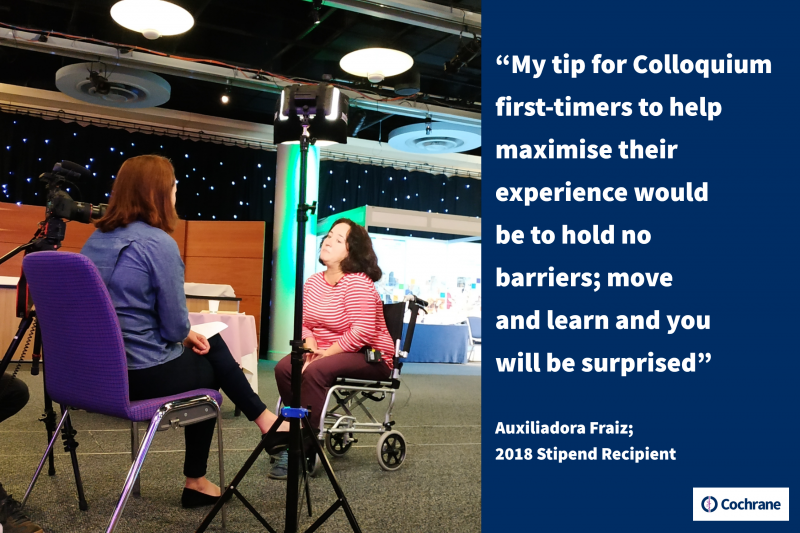
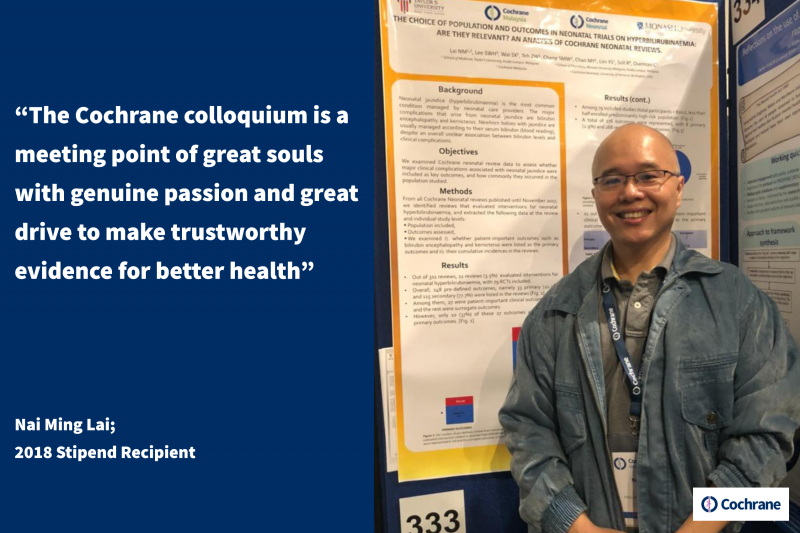
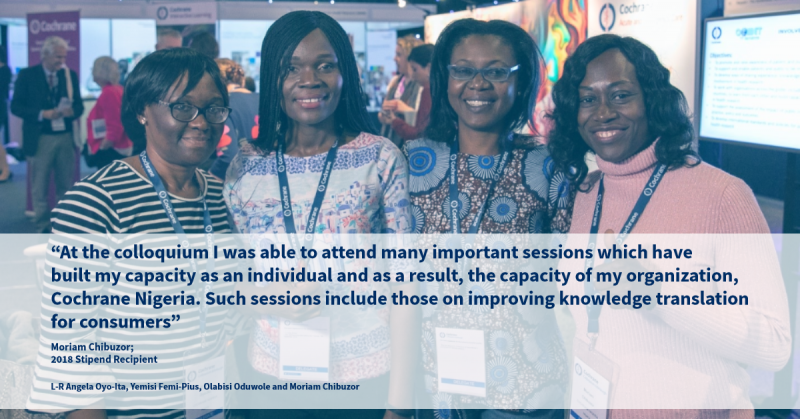
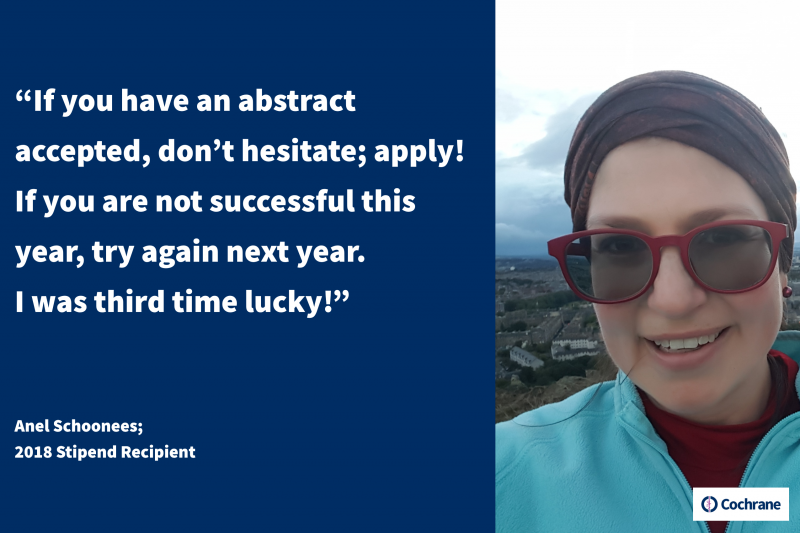
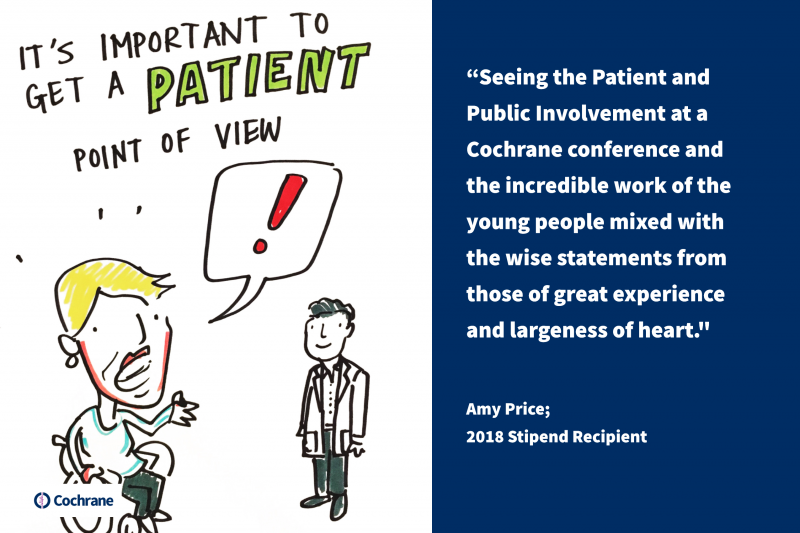
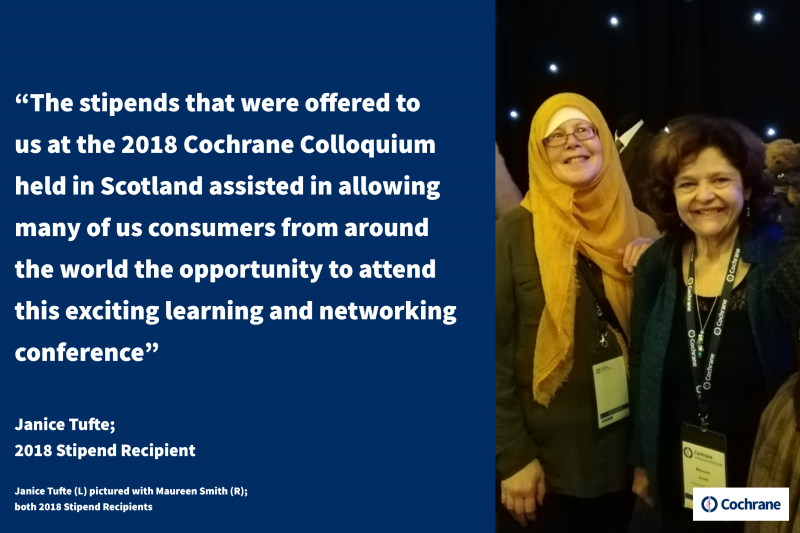
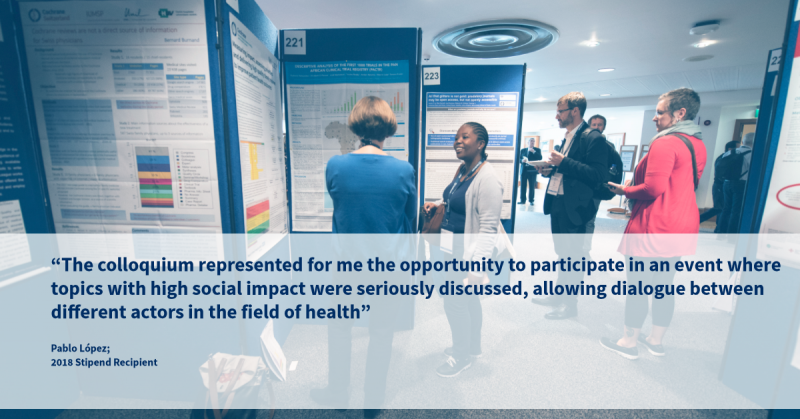
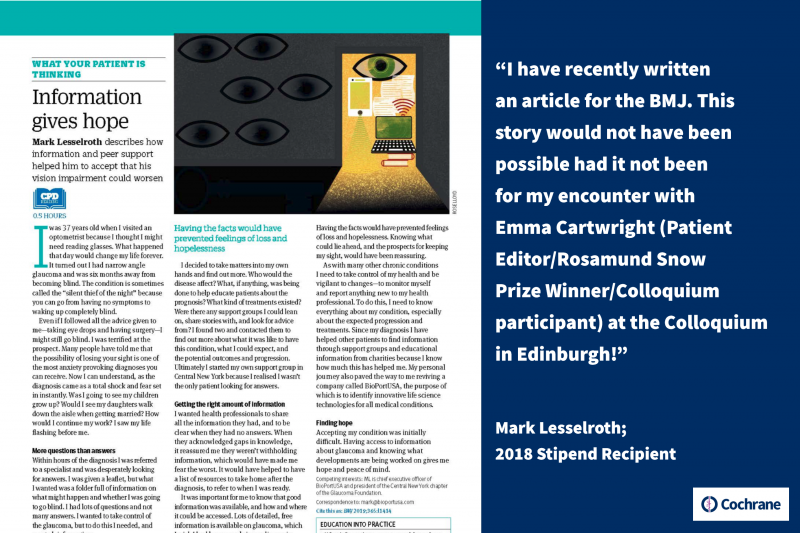
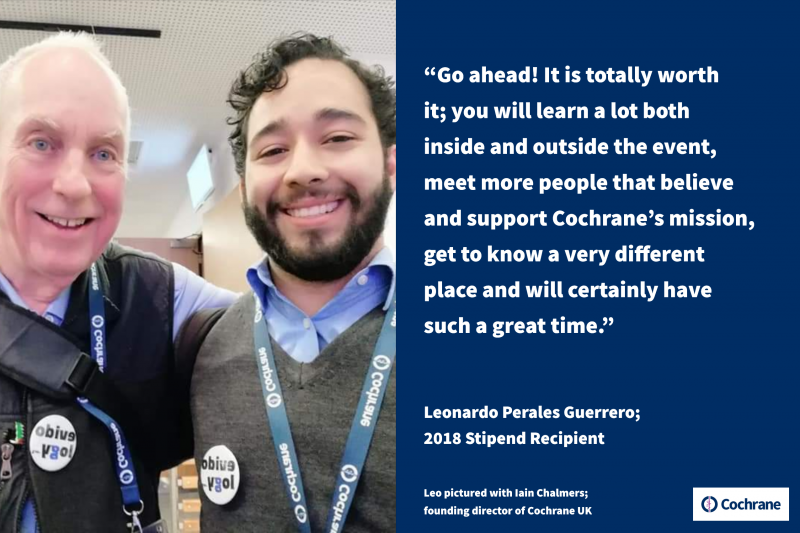
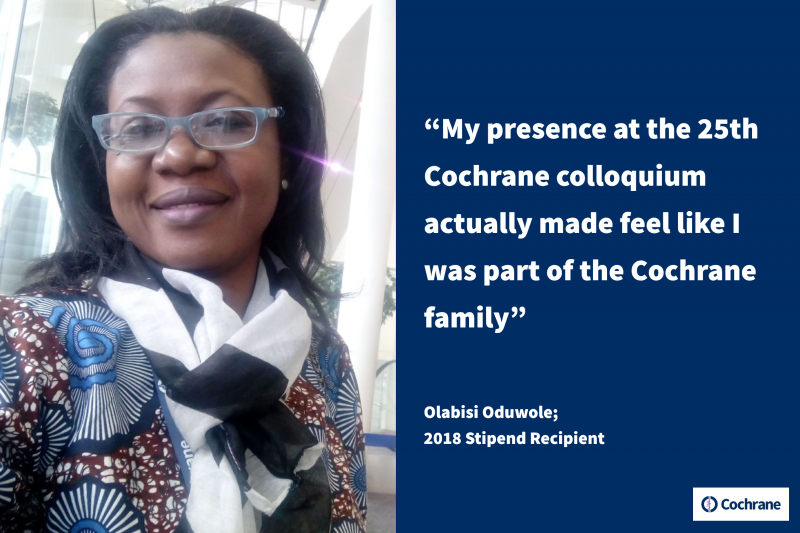
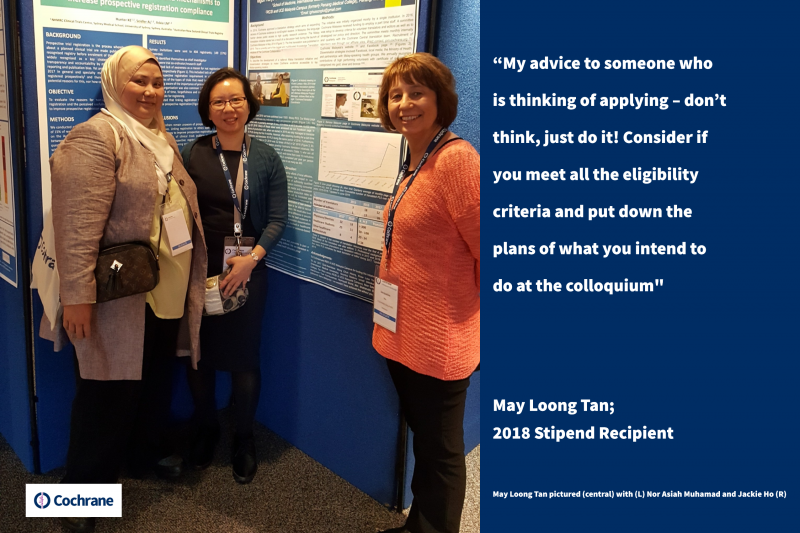
![ Stipend Recipient [Click and drag to move] ](/sites/default/files/uploads/inline-images/Anne%20Anderson%20Award%284%29.png)
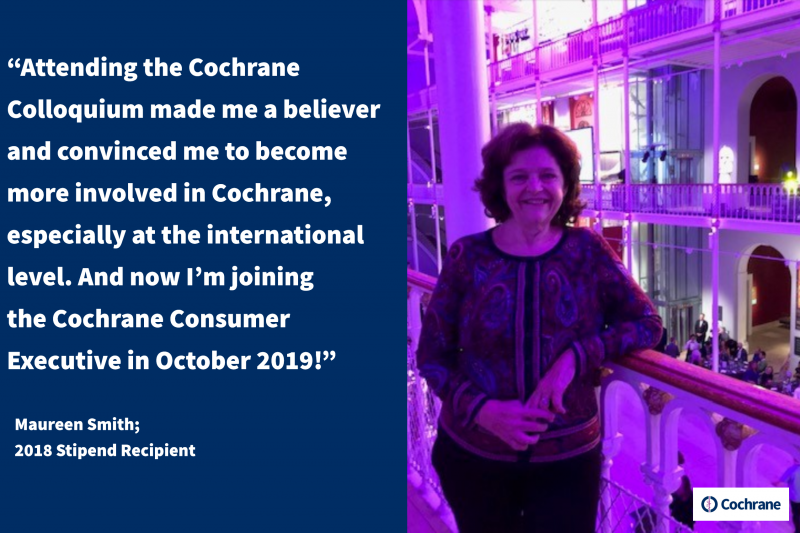
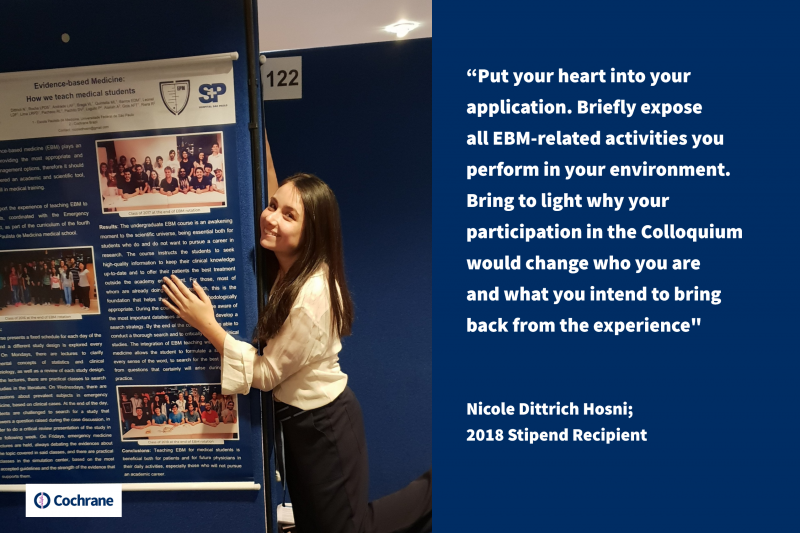
![ Stipend Recipient [Click and drag to move] ](/sites/default/files/uploads/inline-images/Anne%20Anderson%20Award%281%29.png)
